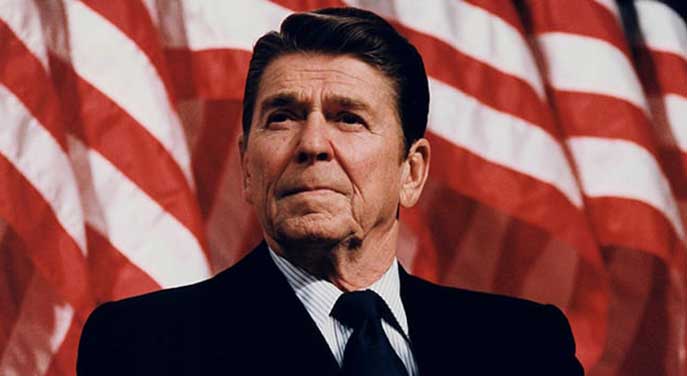 Of all the relationships between U.S. presidents and their Soviet counterparts, the most productive was the unlikely pairing of Mikhail Gorbachev and Ronald Reagan.
Of all the relationships between U.S. presidents and their Soviet counterparts, the most productive was the unlikely pairing of Mikhail Gorbachev and Ronald Reagan.
Between them, they managed to do what had seemed impossible, essentially ending the Cold War. And the breakthrough began 30 years ago this month, in frosty Geneva on Nov. 19-20, 1985.
Gorbachev was younger than the previous generation of Soviet leaders, he was vigorous, smart, and stylistically more western than any of his predecessors. It’s no exaggeration to say that many observers developed an early crush on him.
Reagan was a different matter. Although prepared to bemusedly acknowledge his political potency, the commentariat pegged him as just a fuzzy big picture guy who had a winning way with a set speech. In addition, being a simplistic, hard-line Cold Warrior, he was a type then considered long past its best-before date.
But this perception missed half of the picture.
While Reagan’s anti-Communism was indeed intense, he also had a visceral loathing for nuclear weapons and the related post-war concept of Mutual Assured Destruction (MAD). And although he was often inattentive to details and disengaged from policy execution, this changed when it came to a subject that really interested him.
Preparing for the summit, Gorbachev did the expected things. There was even a lively four-hour Moscow session with George Shultz, the U.S. Secretary of State, after which he passed on the condescending message that he wouldn’t be that tough with Reagan.
Could the Cold War have been avoided if Roosevelt had lived? by Pat Murphy
Reagan, too, had an array of briefings, many of which bored him. He wanted something else, something that experts talking about Kremlin machinations and Soviet geopolitical strategy didn’t provide. He wanted to understand the Russian character and life experience, and he wanted to do it on his own terms. And beginning in January 1984, he’d found a way that worked for him, courtesy of a Russian-speaking writer named Suzanne Massie.
After acting as her then-husband’s researcher on Nicholas and Alexandra – a best-selling book about the last czar and his wife – Massie had gone on to publish her own cultural history of pre-Soviet Russia. A true Russophile whose ideas have been described as “romantic, spiritual, even mystical in nature,” she’d been back and forth to the country many times.
Reagan and Massie bonded, meeting 22 times at the White House and also exchanging letters. In talking to him about Russian life, she encouraged a clear distinction between the Soviet Union and the Russian people. And given Reagan’s perception of Communism as a transitory aberration, that wasn’t a hard sell.
As the summit approached, there was a fair amount of buzz; Reagan was said to be overmatched against the more intellectually nimble Gorbachev. Time magazine opined that mere “charm and amiability” wouldn’t be enough to save the day.
Reagan, however, didn’t have doubts. Stretching back to his days representing the Screen Actors Guild in contract talks with the Hollywood studios, he’d developed plenty of self-confidence in his own negotiating ability. A nervous U.S. delegation stood by as a full one-third of the Geneva sessions featured just the two leaders and their interpreters.
Among the summit’s heated moments, perhaps the most vivid related to Reagan’s beloved Strategic Defense Initiative (SDI). To Gorbachev, it represented a technological threat that could provide the Americans with a first-strike capability. But to Reagan, SDI was a prospective shield which offered the hope of escaping the lunacy of MAD. And he wouldn’t budge.
Despite the disagreements, the two men came away with a sense of possibility.
In Gorbachev’s view, Reagan remained “a dinosaur,” but he was also sincere, even if misguided, on SDI, and not as “hopeless” as he’d been portrayed.
And Reagan was, if anything, more positive. Pressed to include derogatory comments in his televised speech following his return to Washington, he demurred: “This has been a good meeting. I think I can work with this guy.”
Just more than two years later, they signed the first treaty that actually reduced nuclear stockpiles, eliminating a whole class of weapons in the process. The Cold War was truly melting, and it all began in Geneva.
Pat Murphy casts a history buff’s eye at the goings-on in our world. Never cynical – well perhaps a little bit.
The views, opinions and positions expressed by columnists and contributors are the author’s alone. They do not inherently or expressly reflect the views, opinions and/or positions of our publication.


